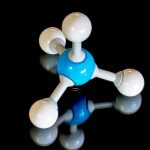When you’re talking about a fan ionizer, you have to differentiate between a fan that has an ionizer feature and an ionizer that uses a fan. Also closely related to those is an air conditioner ionizer.
These are all very closely named products that make it very easy to get confused about what is what and what they do.
So let’s break it down a little bit.
Table of Contents
What Is A Ionizer Fan?
A Ion fan or a fan ionizer is generally a tower fan that has a ionizer feature included.Its primary function is to blow and cool the air like any other fan but it comes with a small brush ionizer that can emit negative ions into the air while the fan is running. An ionizer with a fan is an air ionizer purifier that includes a fan as a means to help move ions further into a room. Its primary function is to clean the air in a room and it does nothing to cool the air.
An Air conditioning ionizer is an air purifier that goes inside of your HVAC air conditioner.
Its primary function is to clean the air inside of the ductwork and use the HVAC as a whole house air purifier.
How an ionizer works.
An air ionizer removes pollutants like bacteria, pollen, and odors from the air by adding a negative charge to molecules.
When emitted into the room, because of polarity, the negative molecules or ions attract the positive molecules (the pollutants in the air).
Then the newly-formed cluster of combined negative and positive ions become too heavy to float and fall to the surface.
This leaves the Ambient Air free of contaminants to breathe easier
but it also leaves the surfaces around the air purifier dusty.
Whether you have an ionizing fan that includes an ion feature or you have a air purifier ionizer, the premises the same. But the capacity to clean air between the two differs drastically.
Have you ever wondered what the ion setting on a fan is?
It is a button that activates a small ionizer or ionizing wire that is meant to clean the air as it’s blowing from the fan.
Does a fan with an ionizer work?
Yes but not very well. The reason is that negative ions have a very short life span and need to be eased into the air rather than full-on blown.
A typical room fan is likely to cause the ions to dissipate much too rapidly before they have a chance to clean the air very well.
Compare that to a air purifier ionizer
A air purifier ionizer only has a couple of settings. Fan or no fan.
And the fan is very small and more like the fan on a computer than a fan that is meant to cool off a room.
Ionizers work best as simple negative ion generators that let the ions move at their own pace. Gradually making their way out into an area as a path is made.
When a fan is used on an air ionizer, it is there to help give the ions a little push to get a little more square footage out of a machine.
Cooling the air and cleaning the air are not the same thing and combining the two does not give the best results.
I honestly think that it is much better to use a fan to cool the air and a separate purifier machine to clean the air in a room.
Are ionizing fans bad for you?
All ionizers create negative ions through either electric spark or UV which causes a small amount of ozone to be created in the process.
The ionizer on a tower fan creates a very low amount of ozone, and then the fan blows it away on the spot. Ozone dissipates very quickly and with the fan right on it, it doesn’t have much of a chance to be a hazard.
I have yet to see a tower fan with an ionizer, that list any warning in their instruction booklet, or give any actual quantity to the amount of ozone being created by the ion feature.
But
An air purifier ionizer with a fan has a much larger chance of creating enough ozone to cause discomfort or irritation to your breathing.
Since the primary function of an ionizer is to create negative ions, the likelihood of ozone buildup is much higher.
Most ionic air purifiers create much less ozone than what is allowed by the EPA.
But not all ionic air purifier manufacturers follow the guidelines perfectly.
Ozone can build up and you should be aware of it.
Ionizers that are too strong should be treated more like an ozone machine that is meant to be operated when there is no one around. That includes pets.
Many ionic air purifiers have a “while you’re away” setting.
That is another way of saying that the setting is there to create a higher level of ozone and you need to be out of the house or office when it is in use.
Also set a timer to turn the machine off a hour or so before you’re going to be home to allow the ozone to completely dissipate before you get there.
Air Conditioning Ionizer
Have you ever wondered what an ionizer on a AC is?
An air conditioning ionizer or induct air purifier is made to be placed into the ductwork of your HVAC system.
The ideal is that the inside of your ductwork is full of bacteria and germs, as well as dust mites.
By placing ionizers in the ductwork, you clean the air before it ever has a chance to distribute the contaminated air into your Home or business.
This is the safest and most effective way to get a whole house air purification effect out of a ionic air purifier.

Are ionizers good for you?
An air ionizer used in the right way can be a great benefit to your health.
not only do they clear the air of harmful contaminants,
They create a atmosphere of freshness that can have an energized and relaxing affect on your mood.
Are ionizers bad for you?
Though ion machines have some great benefits when they are used correctly, they also have their ugly side when their not.
Ionizers are meant to be used for the exact square footage they were purchased. Placing an ionizer that was meant to cover 300 square feet in a closet will create way too much ozone for the area.
This is the reason to EPA discourages the use of ionizers as an air purifier.
And also one of the reasons why California has banned the sell of air cleaners that create ozone as a byproduct.
Ionizers that create too much ozone should just be labeled ozone machines or ozone generators and be happy about it.
Why would you try to sell me something that’s going to be potentially dangerous when you could tell me right out that I should only use it when I’m out of the house?
If you need an air purifier to sleep with, there are types of air purifiers that use no ozone and would be a better choice in that type of situation.Also you can keep a fan on you while you’re sleeping and not affect the capacity of the air cleaner at all.










